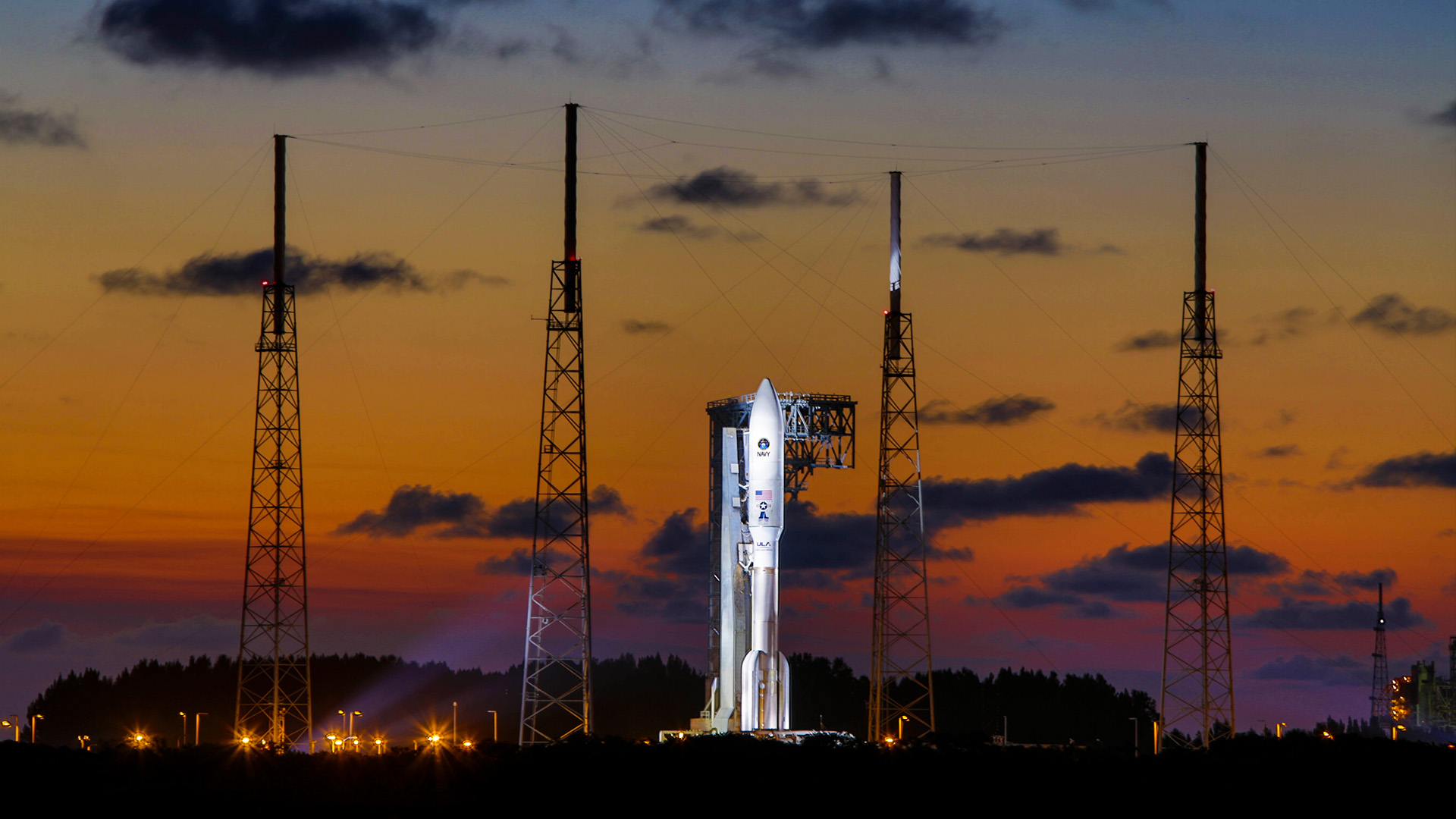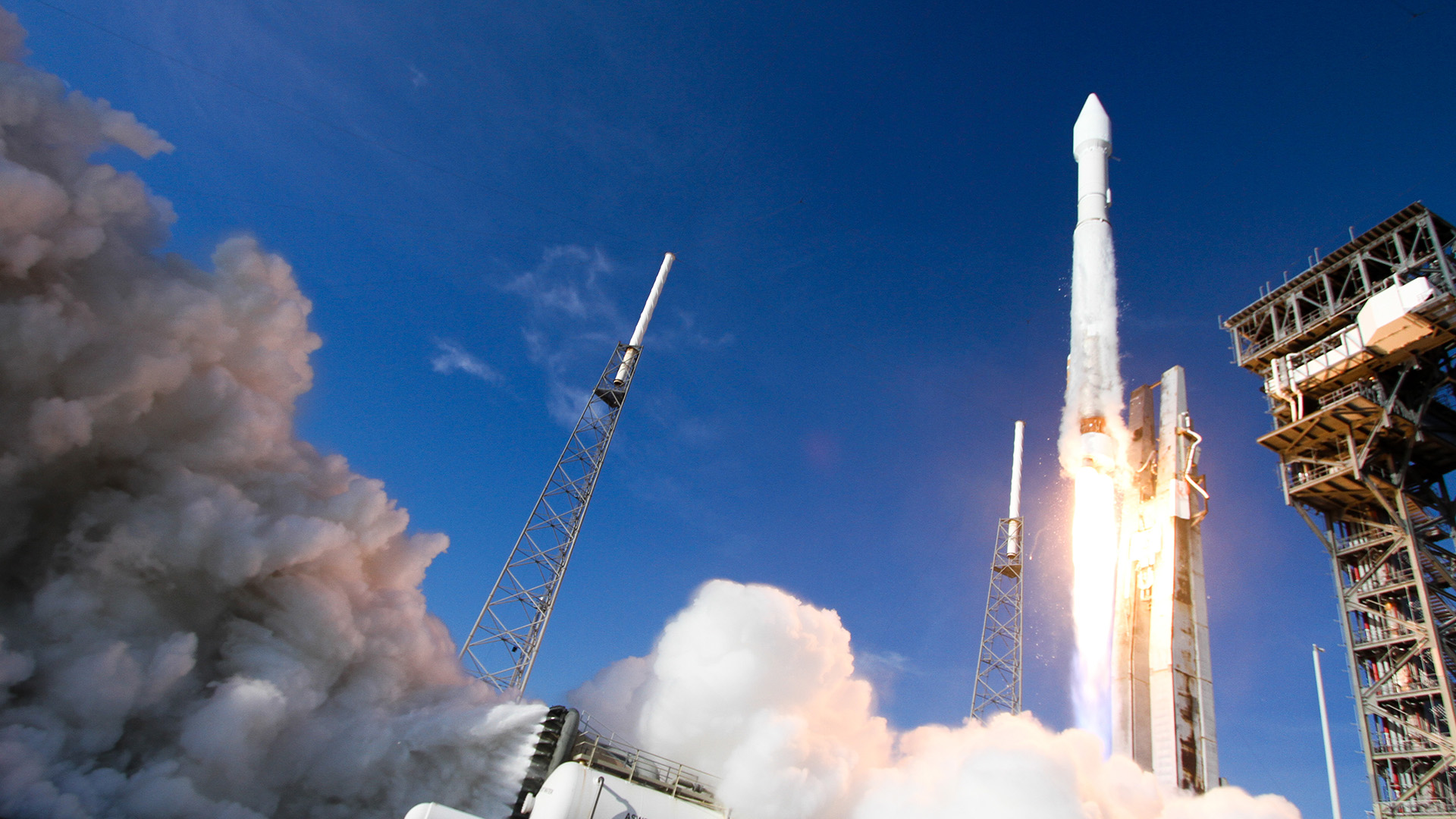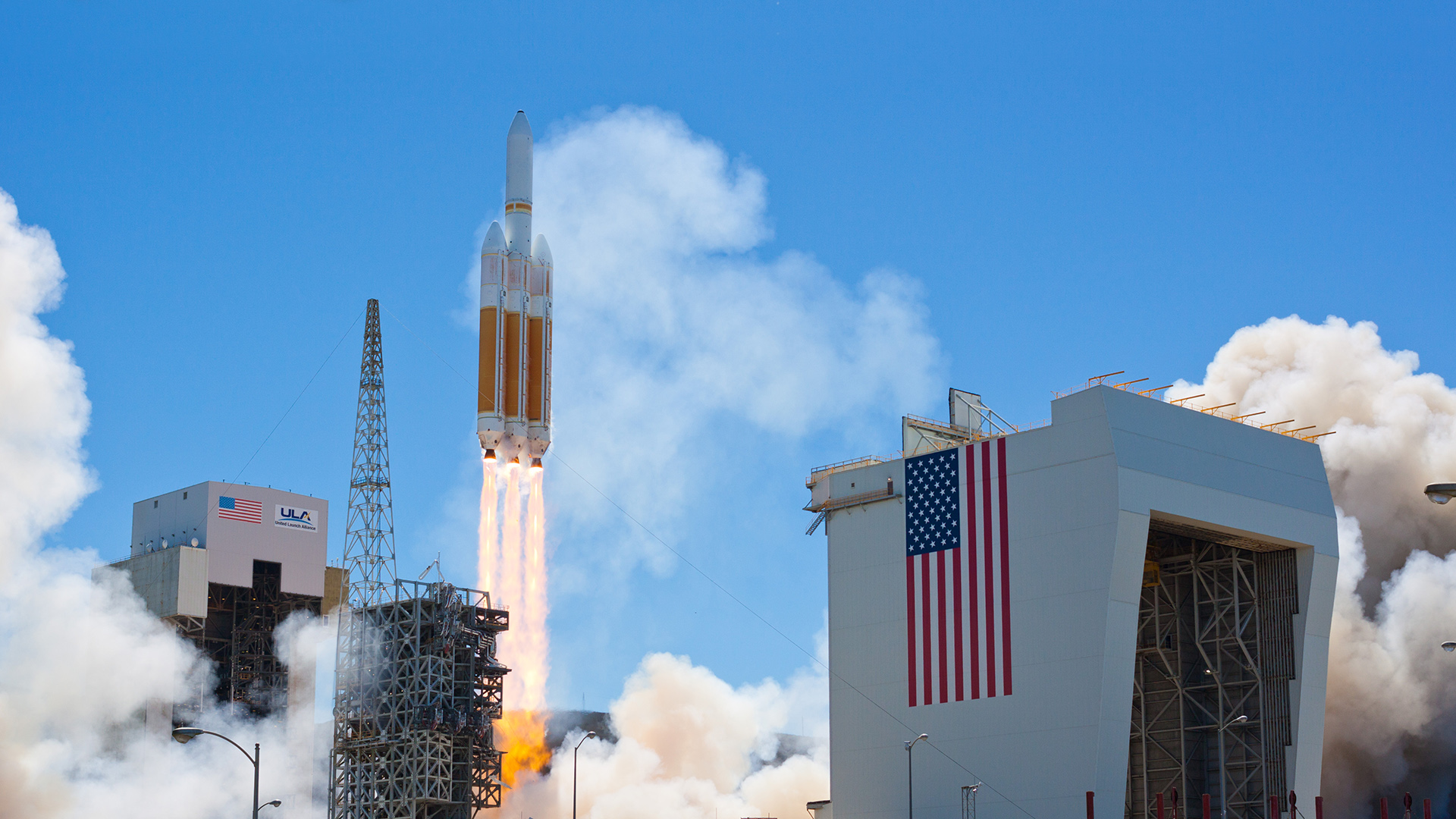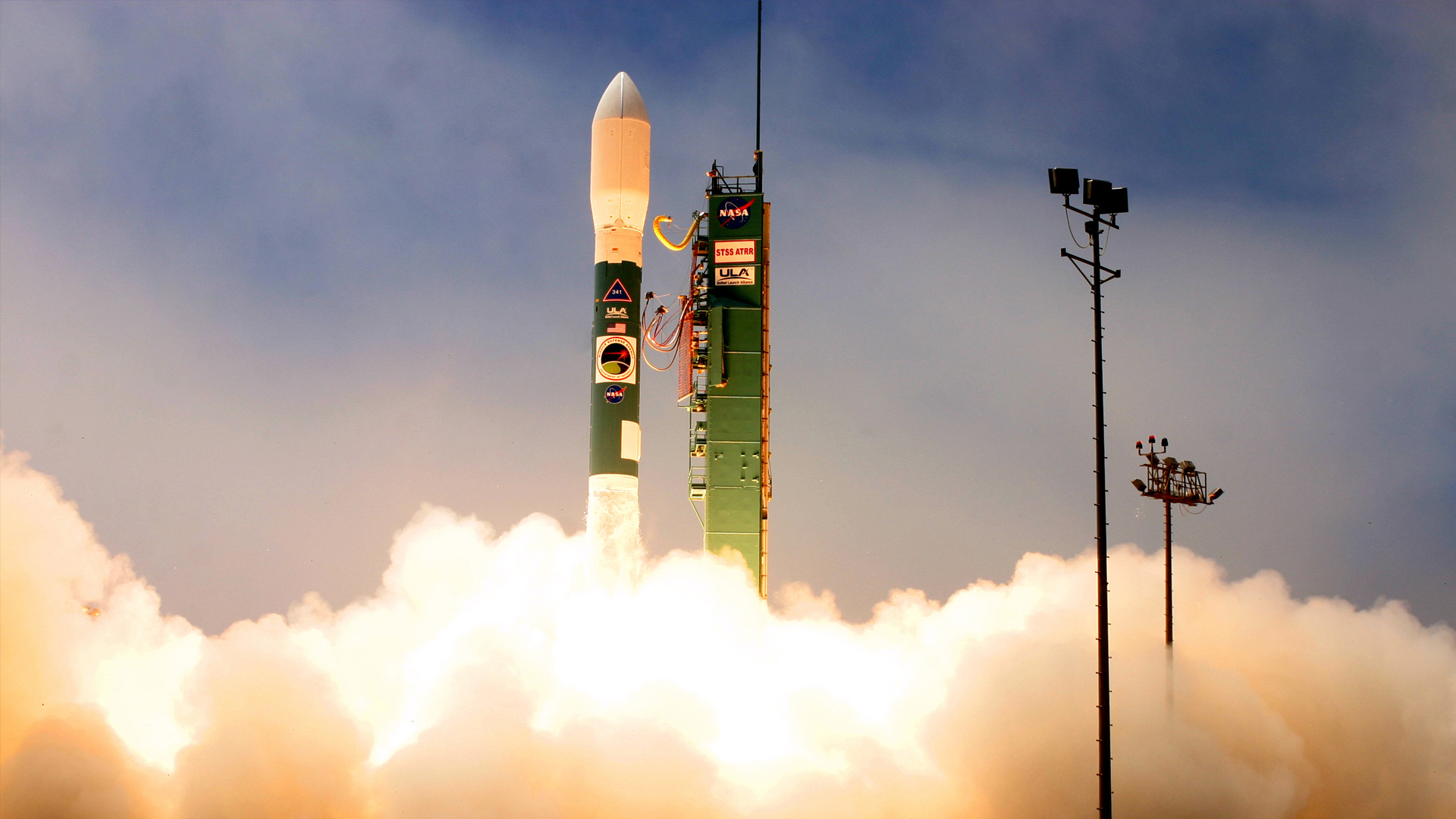Missions
Next LaunchUnited Launch Alliance Atlas V Rocket Successfully Launches NASA’s Mars Science Lab on Journey to Red Planet
Atlas V MSL Mission Booklet
United Launch Alliance Atlas V Rocket Successfully Launches NASA’s Mars Science Lab on Journey to Red Planet
Cape Canaveral Air Force Station, Fla., (Nov. 26, 2011) – A United Launch Alliance Atlas V rocket carrying the Mars Science Lab (MSL) for NASA lifted off from Space Launch Complex-41 here at 10:02 a.m. EST today. This is ULA’s 11th launch of the year and marked the 56th successful launch for the company in 60 months.
"ULA is extremely proud to have launched the Curiosity rover on its 9-month journey to the red planet,” said Jim Sponnick, ULA vice president, Mission Operations. “The technological innovations on this extremely sophisticated MSL mission are most impressive and we are all looking forward to the operations and scientific learning on Mars starting next August.”
This mission was launched aboard an Atlas V 541 configuration vehicle, which includes a 5-meter diameter RUAG Space payload fairing along with four Aerojet solid rocket motors attached to the Atlas booster. The Atlas booster for this mission was powered by the RD AMROSS RD-180 engine and the Centaur upper stage was powered by a single Pratt & Whitney Rocketdyne RL10A engine.
MSL is the last of five critical missions ULA launched for NASA within a six month period. “These five launches were launched both successfully and on-time as a result of the exceptional performance and teamwork demonstrated by the combined ULA, mission partner, and NASA Launch Services Program (LSP) team. We all look forward to these missions providing a much greater understanding of Earth’s climate, life on other planets, and the origins of our solar system,” said Sponnick.
After landing on Mars in August 2012, MSL’s prime mission will last one Martian year (nearly two Earth years). Researchers will use the rover’s tools to study whether the landing region has environmental conditions favorable for supporting microbial life. ULA's next launch is the Delta IV Wideband Global Satcom (WGS)-4 mission for the United States Air Force scheduled for Jan. 19, 2012 from Space Launch Complex-37 at Cape Canaveral Air Force Station, Fla.
ULA program management, engineering, test, and mission support functions are headquartered in Denver, Colo. Manufacturing, assembly and integration operations are located at Decatur, Ala., and Harlingen, Texas. Launch operations are located at Cape Canaveral AFS, Fla., and Vandenberg AFB, Calif.
For more information on ULA, visit the ULA Web site at www.ulalaunch.com or call the ULA Launch Hotline at 1-877-ULA-4321 (852-4321). Join the conversation at www.facebook.com/ulalaunch and twitter.com/ulalaunch.





